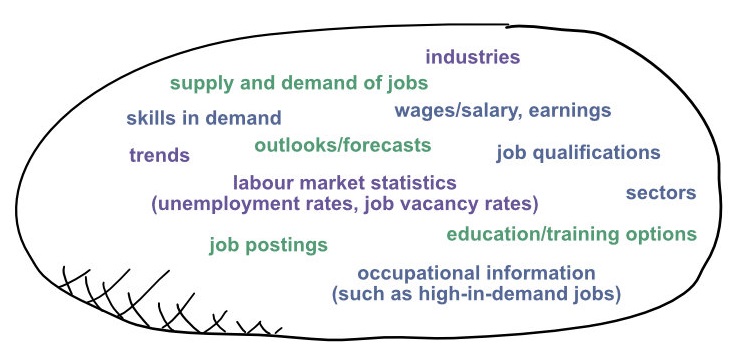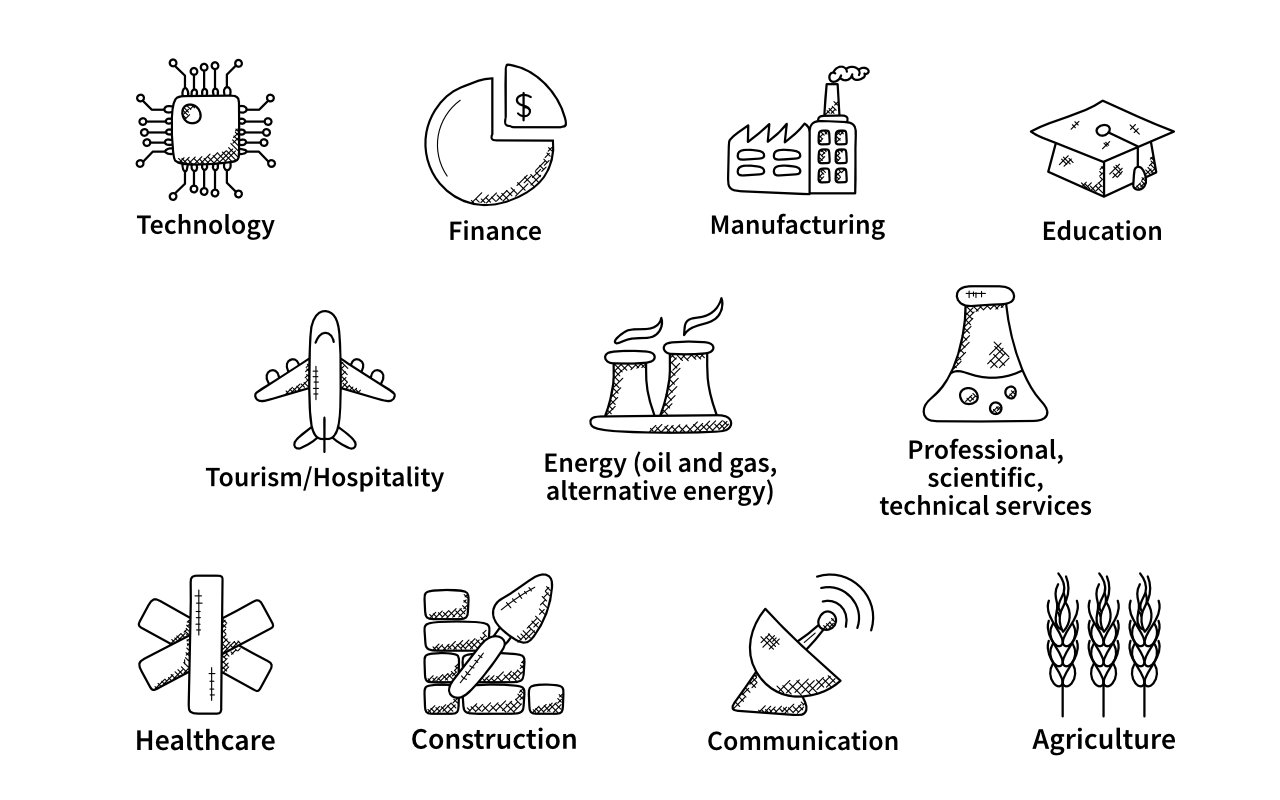🔎Activity: Explore The Skills Landscape (Exploratory only)
| Site: | RRU Open Educational Resources |
| Course: | Strategic Volunteerism: Inspiring Changemakers |
| Book: | 🔎Activity: Explore The Skills Landscape (Exploratory only) |
| Printed by: | Guest user |
| Date: | Tuesday, 3 March 2026, 7:05 AM |
Introduction
Exploring the skills landscape means figuring out what skills are out there and understanding your own strengths and areas for growth through a gap analysis. When embarking on a volunteer job search, conducting a skills gap analysis is important for finding the right fit and making a significant contribution. This analysis helps you pinpoint your strengths and areas needing improvement, enabling you to target your efforts effectively.
In the world of exploring skills, having access to information like job trends, industry insights, and details about different jobs is important. It's like having a map that shows you where to go. The next three sections provide a brief overview of:
- Labor Market Information (LMI) tells us what skills are in demand
- Industry information shows what skills are important in different fields
- Occupational information helps us understand what skills we need for specific jobs.
A detailed gap analysis is an important career management tool. If you want to explore this in more detail, you can access the Career Management Resources for Professionals content on External Influences.
Useful Tip: Two Navigation options for this multi-page module:
- Access the various pages by opening the Table of Contents on the right of your screen (you may need to scroll down to the bottom if you are on a mobile device.
- Advance through the pages using the 'next' and 'previous' buttons at the top and bottom of each page.
1. Labour Market Information (LMI)

Activity
Find LMI information from at least three sources on the web that relate to your spark, an industry, a field or a job title that interests you. There are some links below to get you started, or you can find other sites of your choosing.
When you use the web to conduct research, you will find a lot of information. But how will you know if it is reliable? Use the CRAAP Test to ensure the quality of your sources. The CRAAP Test is an evaluation tool that uses a set of inquiries designed to aid you in assessing the validity of the information you come across. Depending on what you're looking for, some questions might matter more than others.
Use your Workbook to record your answers for the following questions:
- How does the information you found align with your personal career interests, goals, and skills?
- How could you use these sites to your advantage for future use?
- Did you discover any surprising information?
Useful Links for this Activity:
2. Industries
"An industry is a group of companies that are related based on their primary business activities." - Investopedia
Developing industry knowledge offers the opportunity to explore diverse fields and connect them to your Spark. If you are not sure where to begin, look at the industry examples below and follow what interests you. As a starting point, think about what you enjoy doing or learning about.
Activity
Use the web to investigate an industry of interest, an emerging industry, and a declining industry. There are some links below to get you started, or you can find other sites of your choosing.
Use your Workbook to record your answers for the following questions:
- What are some key industries that align with your interests or skills, and what aspects of each industry appeal to you?
- What challenges do these industries face?
- What information did you learn that could influence your search for a volunteer role?
Here are some ideas for industries to investigate, or choose your own:

|
Useful Links for this Activity:
3. Occupational Information
Occupation is defined as "A collection of jobs sufficiently similar in the work performed to be grouped under a common label" - LMiC
Occupational information can be useful for learning about the specific tasks, responsibilities, and skills required for different positions. Occupational information is also useful for skills gap analysis because it helps us assess our current skills against the skills needed for different jobs.
Occupational profiles can include:
- sample job titles
- main duties
- educational and skill requirements
- industry required credentials
- wages/salaries, and future outlook
Activity
Use the web to review an occupational profile of interest from two different sites. There are some links below to get you started, or you can find other sites of your choosing.
Use your Workbook to record your answers for the following activity:
- What are the similarities between the occupational profiles from each site, and
- what are the differences between the occupational profiles?